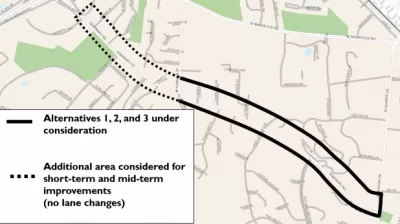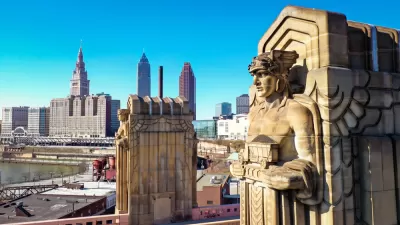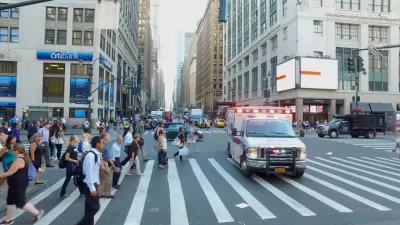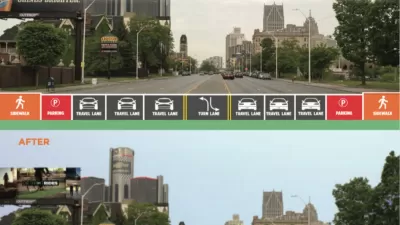Drivers are a powerful enough lobby to overcome all evidence of the need to redesign streets for safety. Examples from Maryland and Virginia provide the latest case studies in Vision Zero futility.

Canaan Merchant doesn't like the current trends in road safety politics in the Washington, D.C. region:
Some local road projects designed to calm traffic and increase safety for all users have been met with a surprising amount of resistence [sic]. Worse, regional officials seem to be prioritizing voices of opposition over actual studies, and it’s keeping our communities unsafe.
Traffic calming proposals in Alexandria, Virginia, and Montgomery County, Maryland were nixed after vocal opposition from drivers worried about delays, "despite evidence to the contrary," according to Merchant.
Merchant digs into the specifics of each example, where both jurisdictions made a choice that will knowingly lead to more death and injury, despite evidence that safety changes could be made with only a few seconds of delay for drivers. Merchant's conclusion from the process in both these examples: "the evidence doesn't seem to matter."
FULL STORY: These “road diets” would make streets safer and barely affect traffic. Why do people oppose them?

Maui's Vacation Rental Debate Turns Ugly
Verbal attacks, misinformation campaigns and fistfights plague a high-stakes debate to convert thousands of vacation rentals into long-term housing.

Planetizen Federal Action Tracker
A weekly monitor of how Trump’s orders and actions are impacting planners and planning in America.

San Francisco Suspends Traffic Calming Amidst Record Deaths
Citing “a challenging fiscal landscape,” the city will cease the program on the heels of 42 traffic deaths, including 24 pedestrians.

Defunct Pittsburgh Power Plant to Become Residential Tower
A decommissioned steam heat plant will be redeveloped into almost 100 affordable housing units.

Trump Prompts Restructuring of Transportation Research Board in “Unprecedented Overreach”
The TRB has eliminated more than half of its committees including those focused on climate, equity, and cities.

Amtrak Rolls Out New Orleans to Alabama “Mardi Gras” Train
The new service will operate morning and evening departures between Mobile and New Orleans.
Urban Design for Planners 1: Software Tools
This six-course series explores essential urban design concepts using open source software and equips planners with the tools they need to participate fully in the urban design process.
Planning for Universal Design
Learn the tools for implementing Universal Design in planning regulations.
Heyer Gruel & Associates PA
JM Goldson LLC
Custer County Colorado
City of Camden Redevelopment Agency
City of Astoria
Transportation Research & Education Center (TREC) at Portland State University
Jefferson Parish Government
Camden Redevelopment Agency
City of Claremont





























